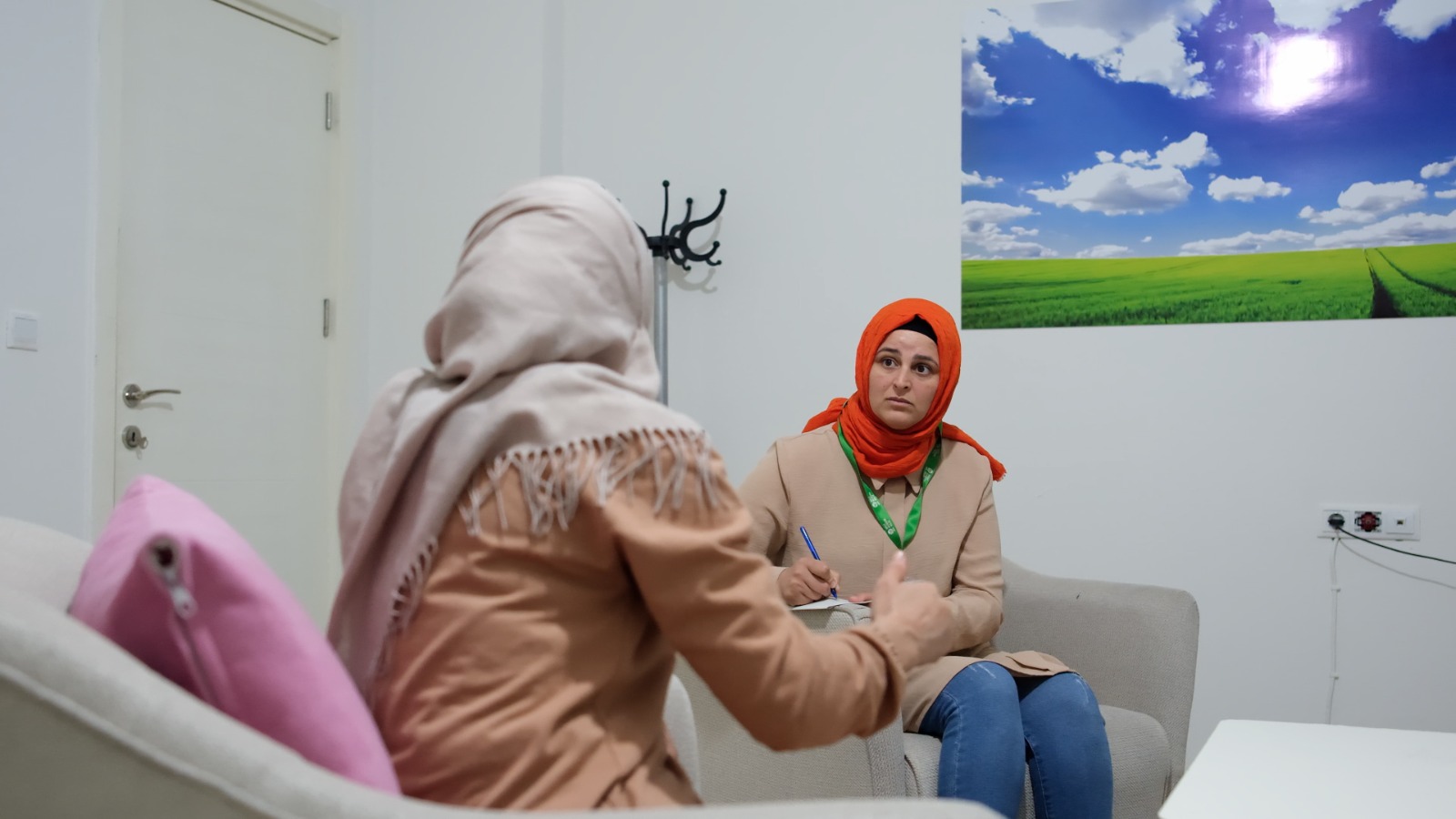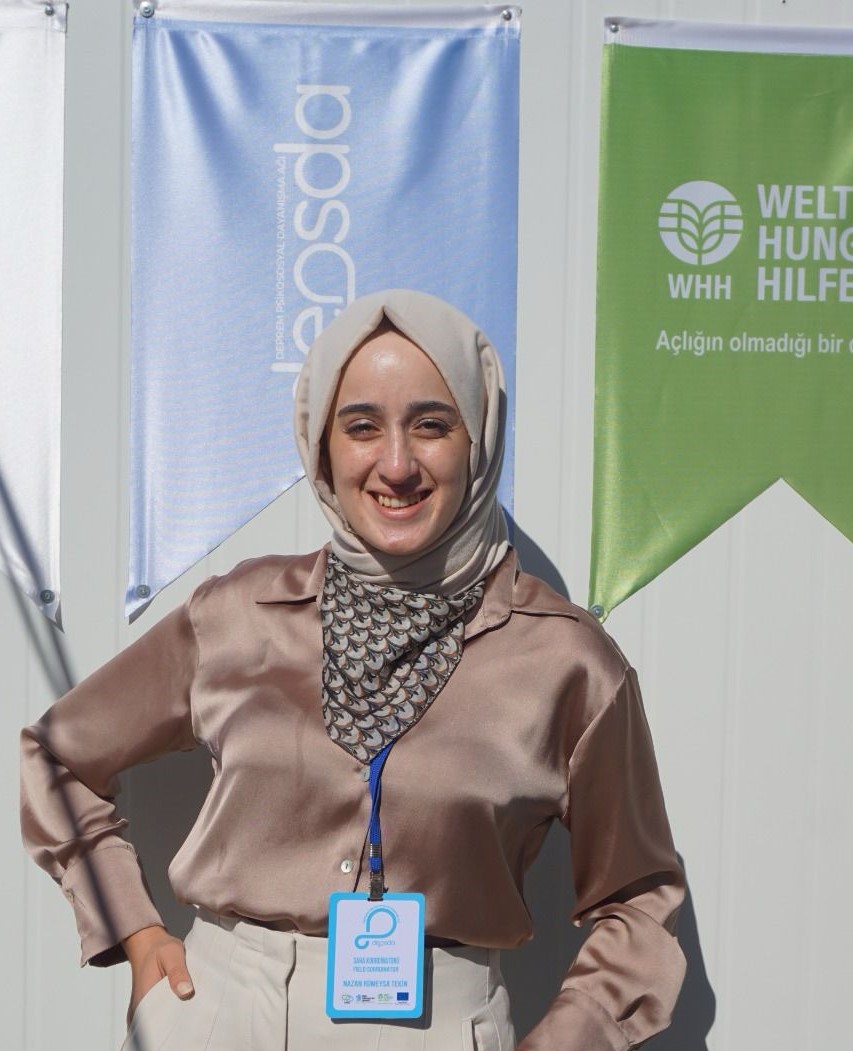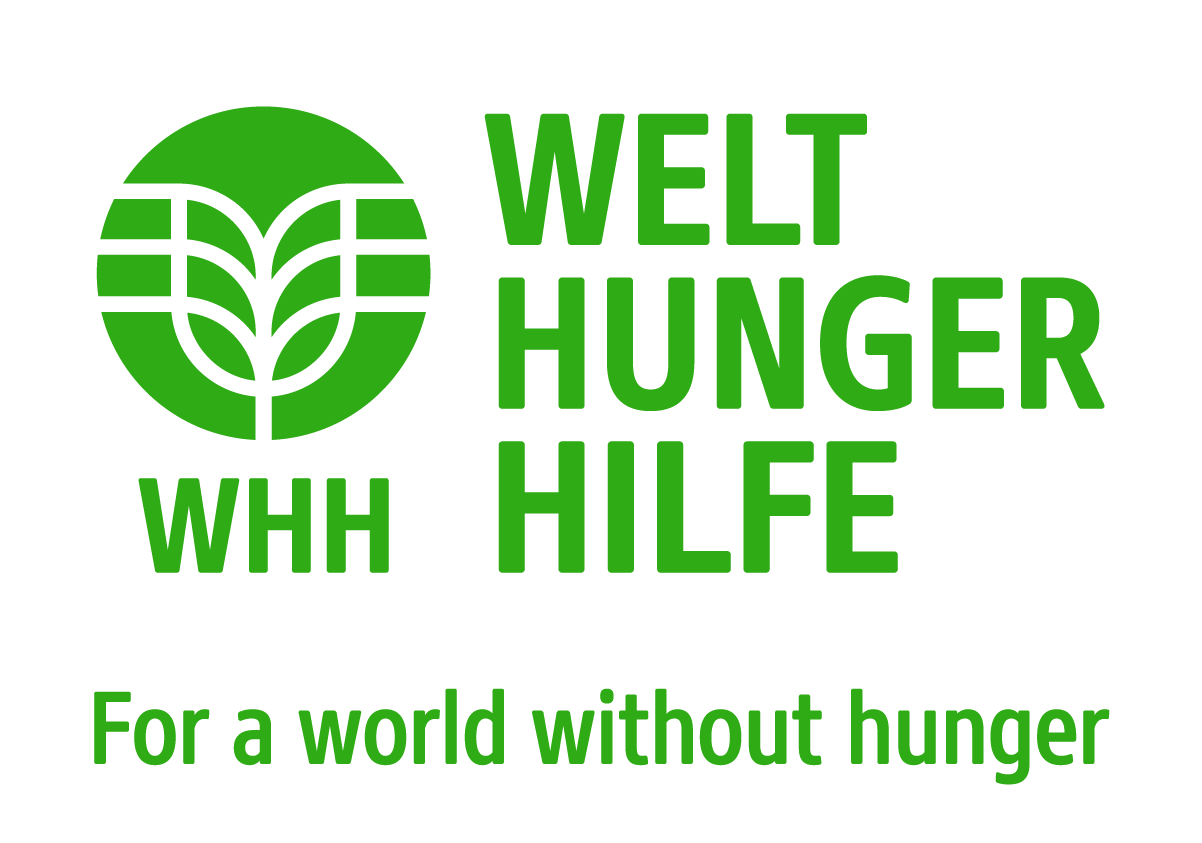Easing and Addressing Traumas After the Earthquake
Nine months have passed since the February earthquakes hit Turkiye and Syria in February. When dealing with the aftermath of such a traumatic event, it's important to understand the natural human responses, both physical and emotional, that can help individuals cope. Nazan Rümeysa Tekin, who works as a field coordinator for the Turkish Psychologist Association (TPA) in Hatay, a partner of Welthungerhilfe (WHH), gave valuable insights on psychological aspects of the affected communities.

|
© WHH, Mardin, Turkiye October 2023 |
Following the earthquake, one in five individuals experienced post-traumatic stress disorder (PTSD). This silent suffering, born from the trauma and an overwhelming sense of helplessness, continues to affect people. Ongoing aftershocks, loss, and the challenging environment obstruct the healing process. As Nazan Rümeysa Tekin puts it, "Sustained stress is the most significant obstacle to recovery." Additionally, depressions and anxiety disorders as well as negative coping mechanisms, such as increased alcohol and drug use, have also surfaced as ways to deal with ongoing trauma. These issues emphasize the critical need to address mental health concerns in affected areas. Nazan points out that the situation on the ground:
"We encounter a high number of post-traumatic stress disorder, depression, and anxiety disorders. Additionally, alcohol and drug use have increased as coping mechanisms."
Seeking social support, practicing self-care, maintaining daily routines, and engaging in activities are key ways to regain a sense of control, reduce feelings of isolation and help individuals in these hard times. WHH and its partners, with support from EU Humanitarian Aid, are actively working in the earthquake affected areas to aid communities and enhance their mental well-being.
Due to the ongoing challenges, there is limited psychological data available for individuals who have experienced the earthquake and its psychological affect. Nazan says:
"Traumas due to the earthquake have created a profound sense of helplessness. This, coupled with ongoing losses, environmental factors, and aftershocks, keeps this trauma alive and makes it difficult to understand its full impact."
On the other side, there are stories of people showing great strength, determination, and an unbreakable human spirit. Even in the face of destruction, a glimmer of hope appears. Container gardens, symbolize this resilience. These small efforts demonstrate the community's strong will to make a place for themselves in their lives. It's proof that even when things seem really tough, people can keep hope alive.
"In the earthquake cities, we observe individuals using water bottles as flowerpots in containers for planting. This with similar samples, shows how the community is trying to make a space for themselves in their changed lives."
There is still a long road ahead, and humanitarian organizations and government authorities working in the field must pay more attention to the psychological aspect of this issue. This is because the most needed support for individuals experiencing this trauma is simply being there for them, providing direct contact.
"When I am there and show my support, it can really help people feel better and valued. We need to make things more normal, and people need to know we're here to help."

|
© TPA, Hatay, Turkiye October 2023 |
